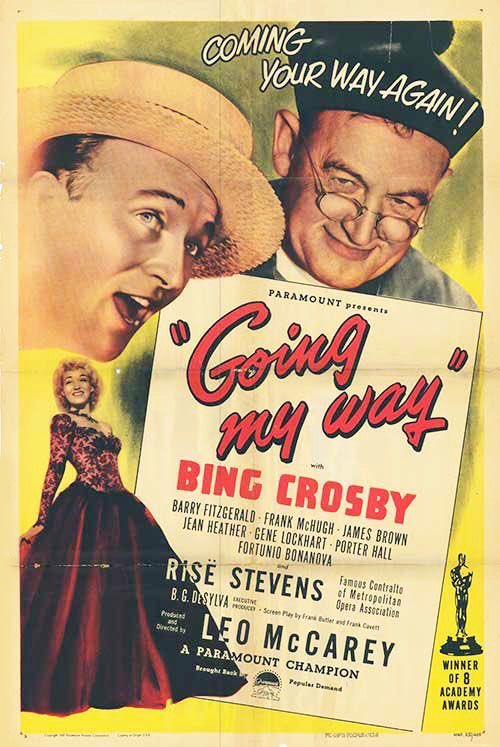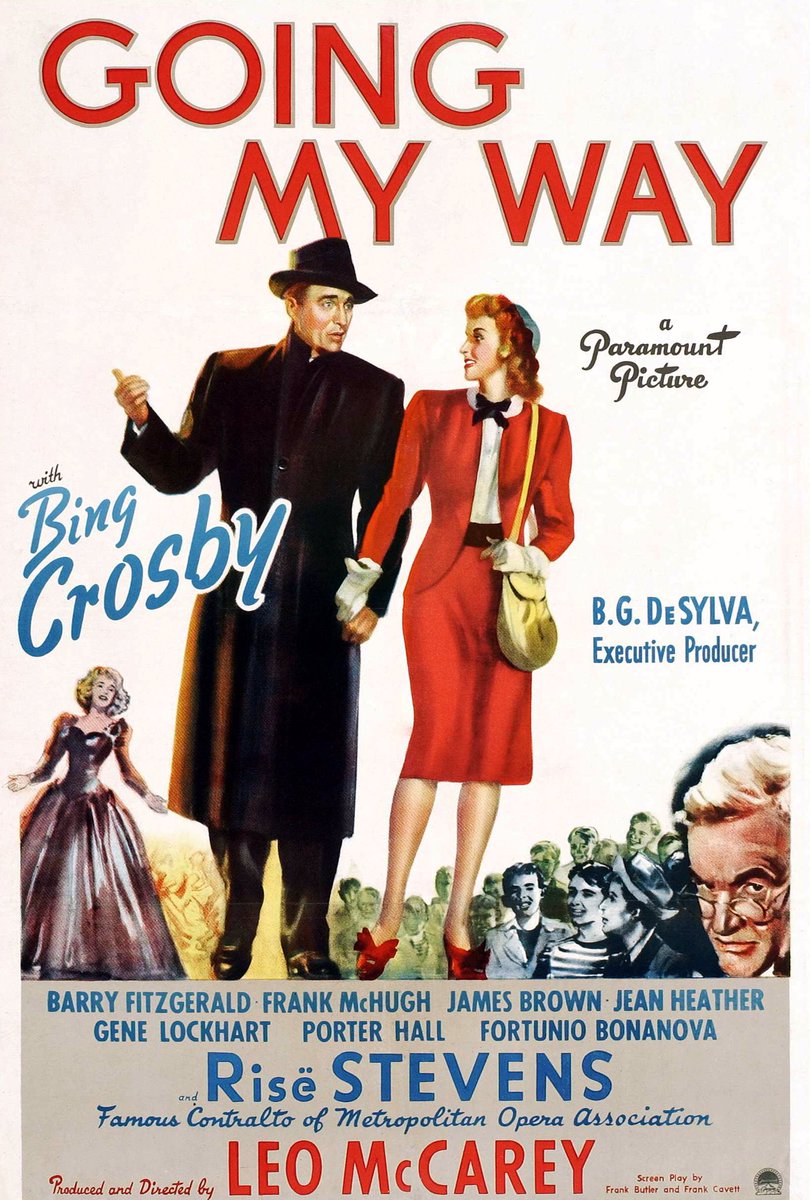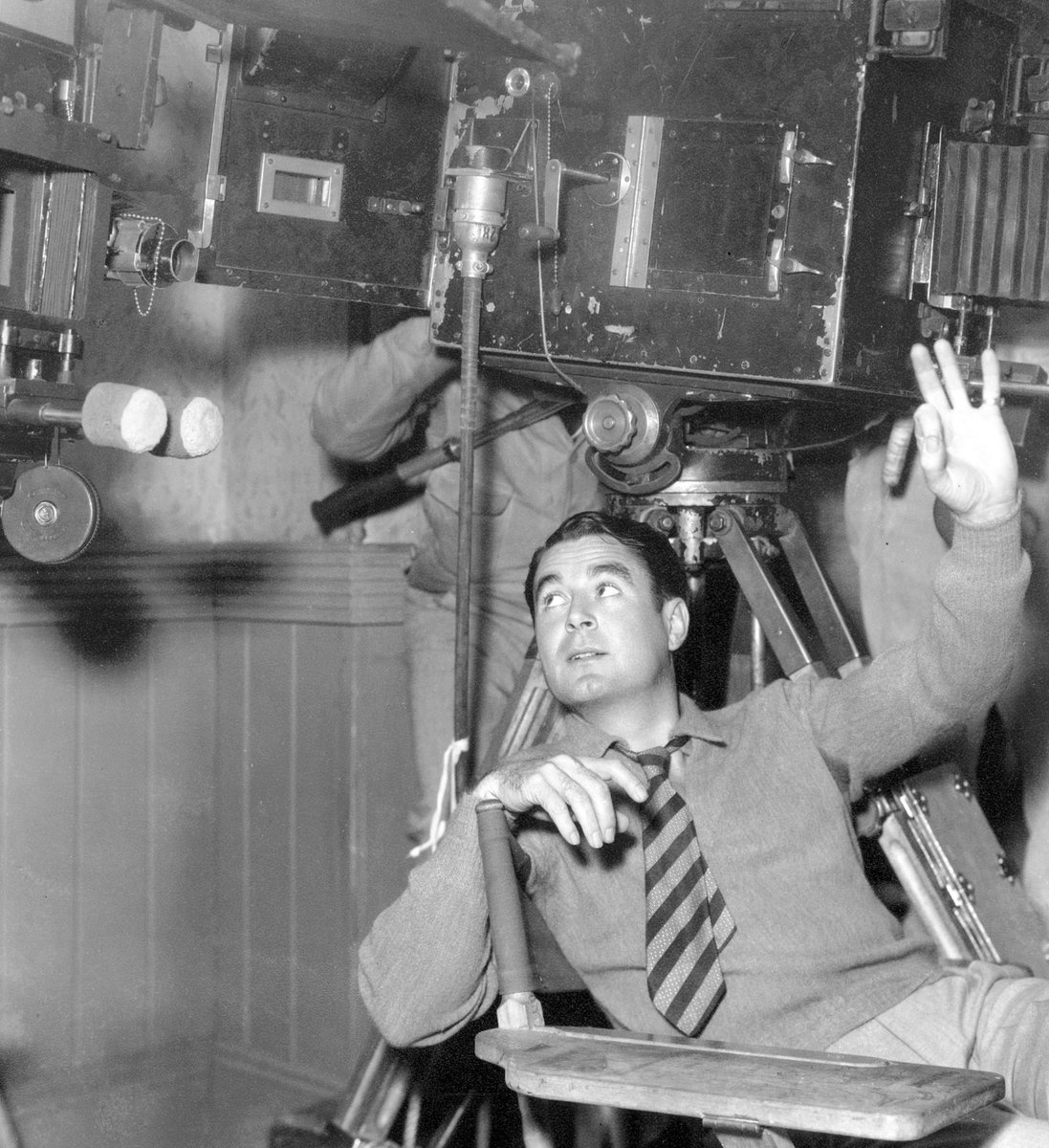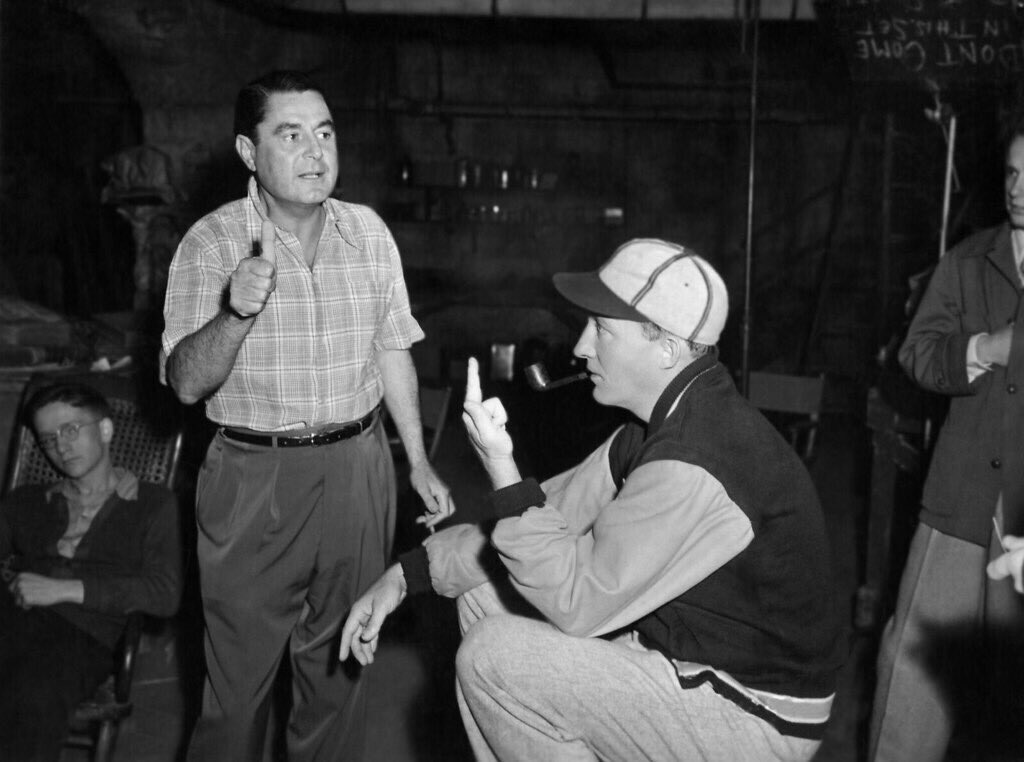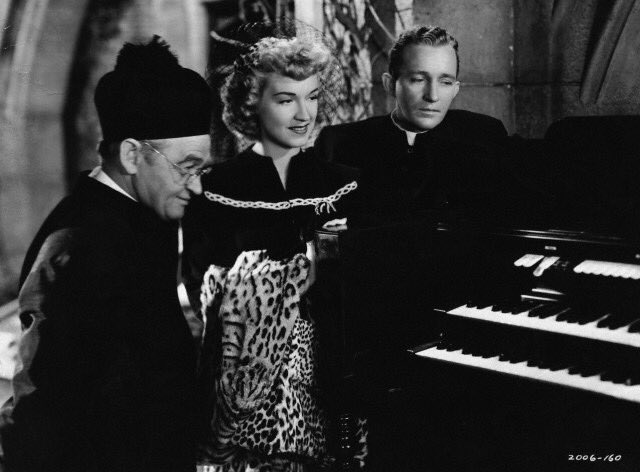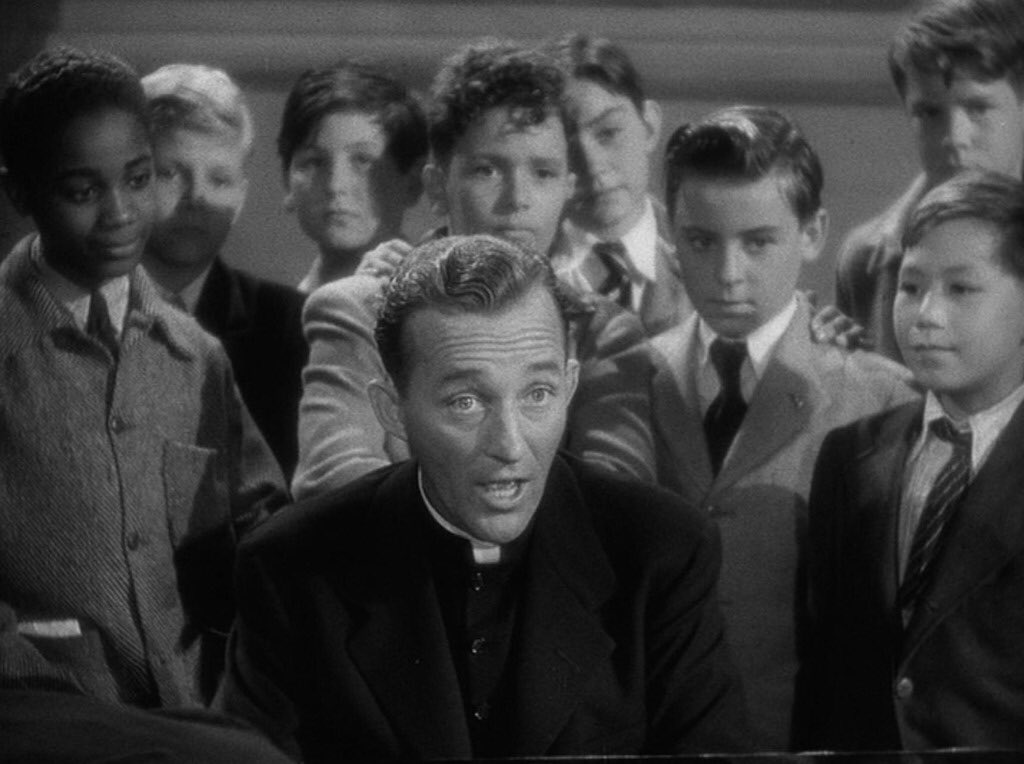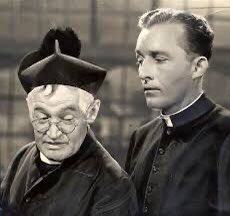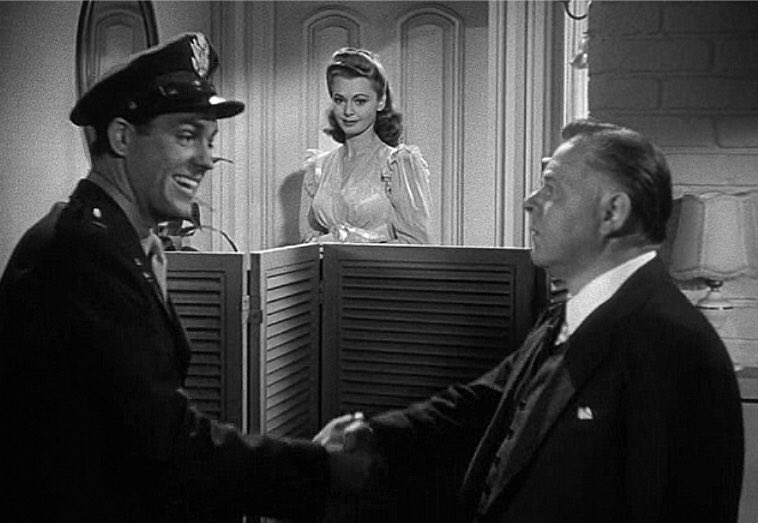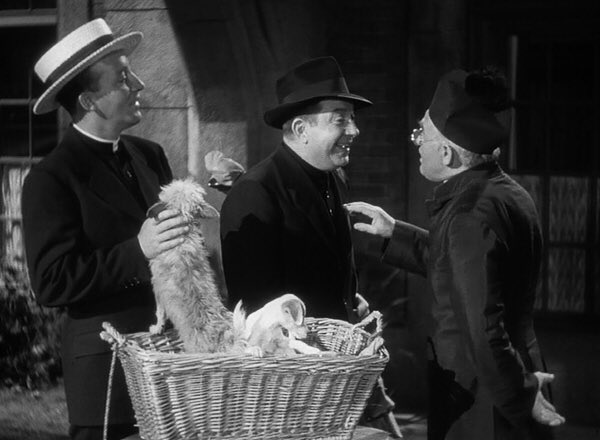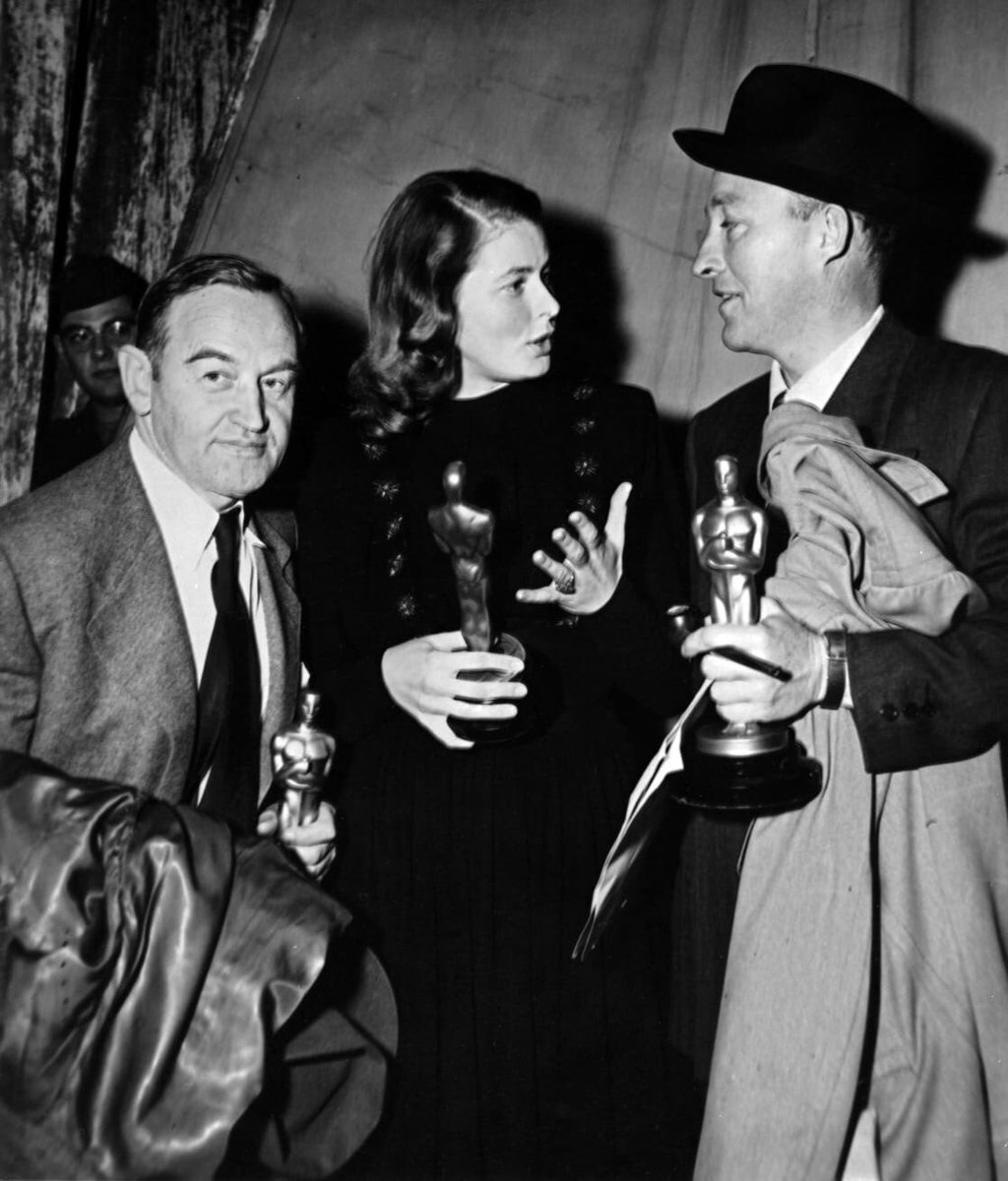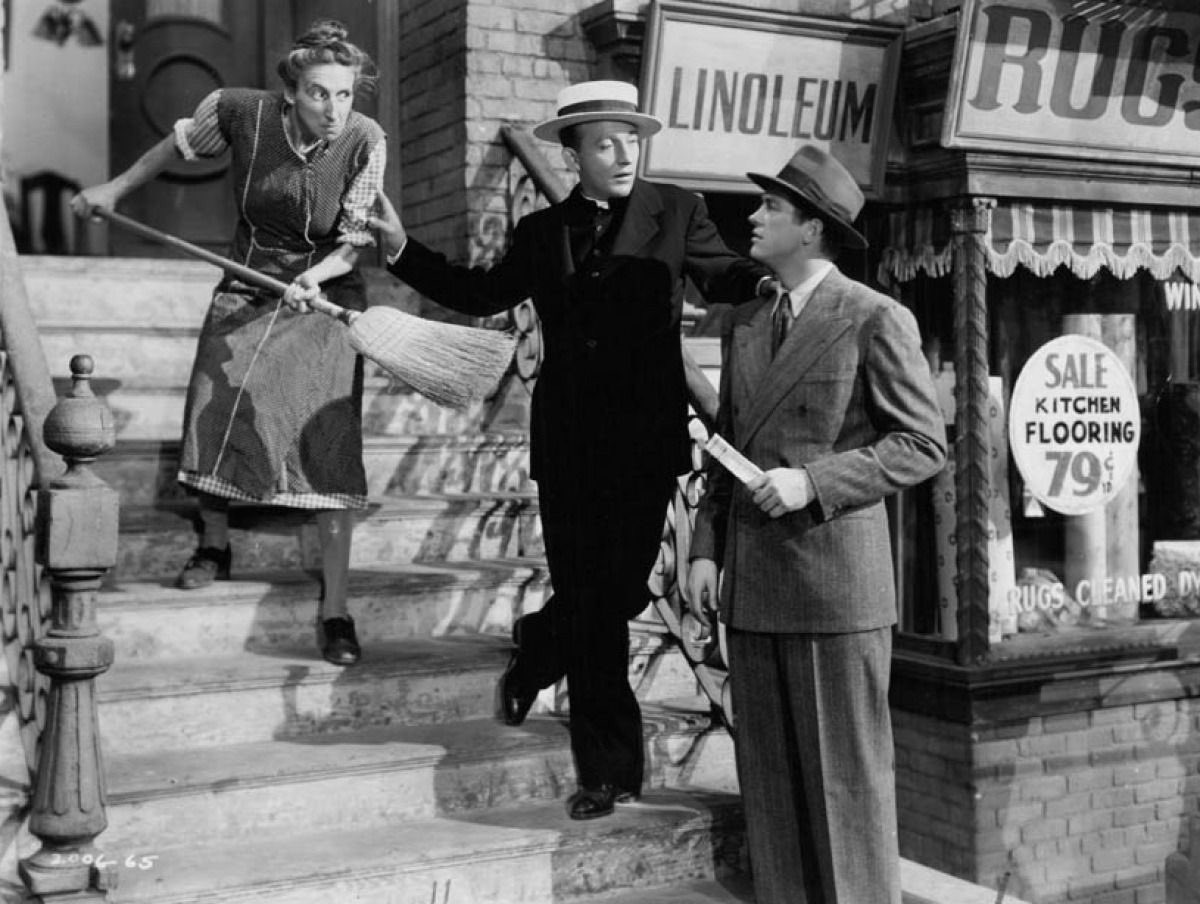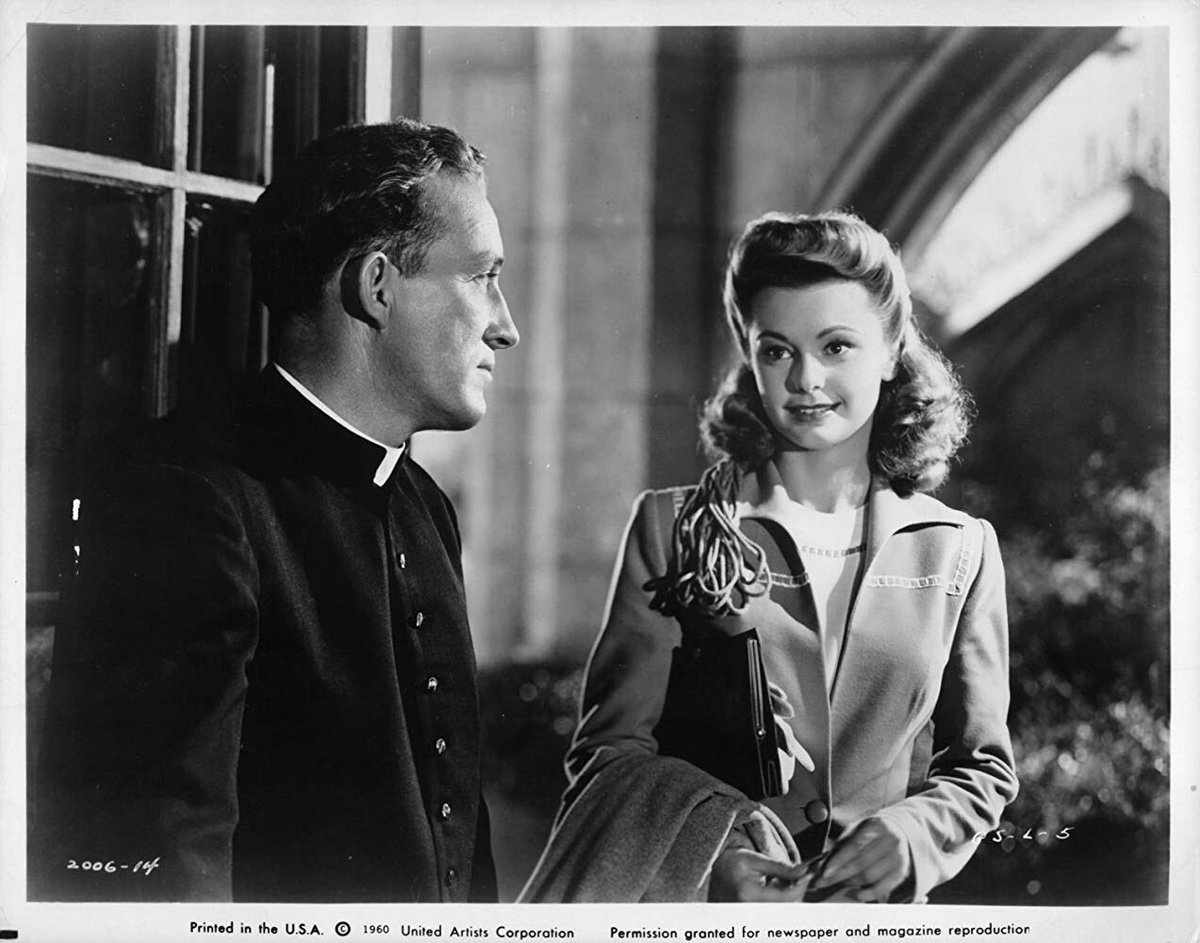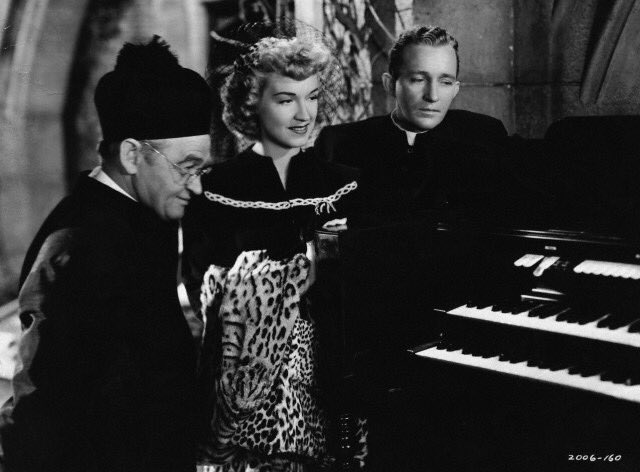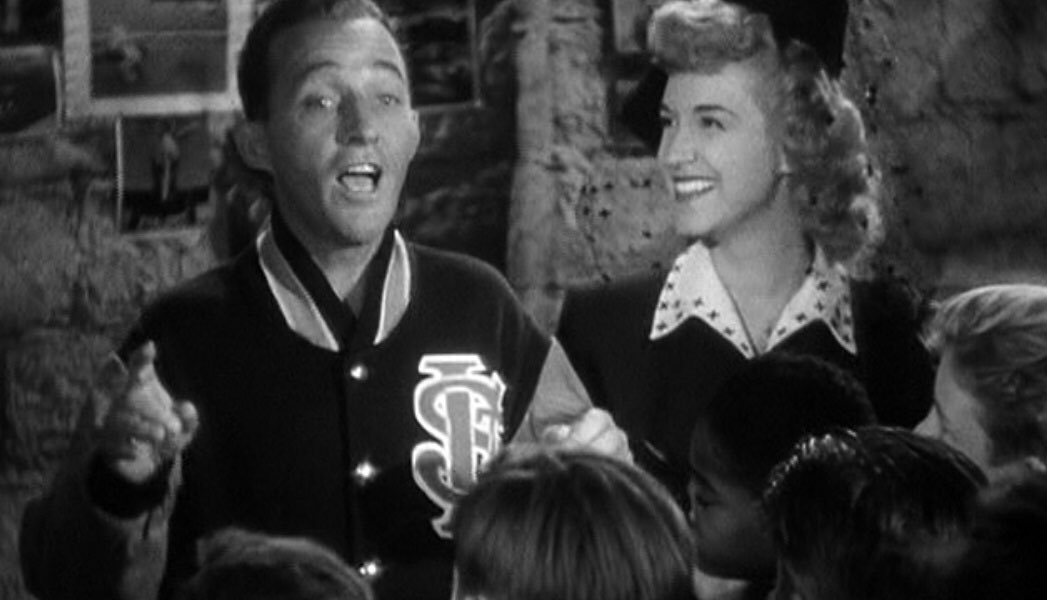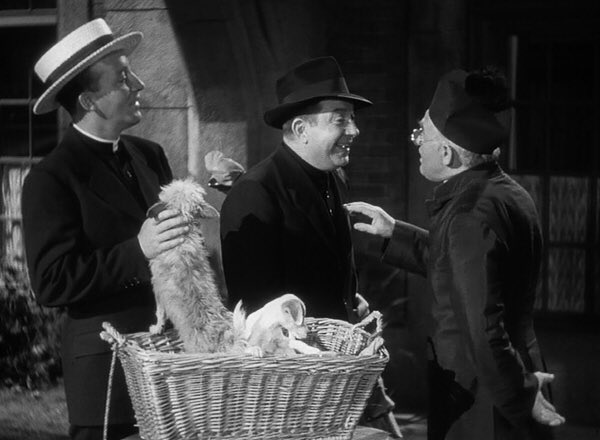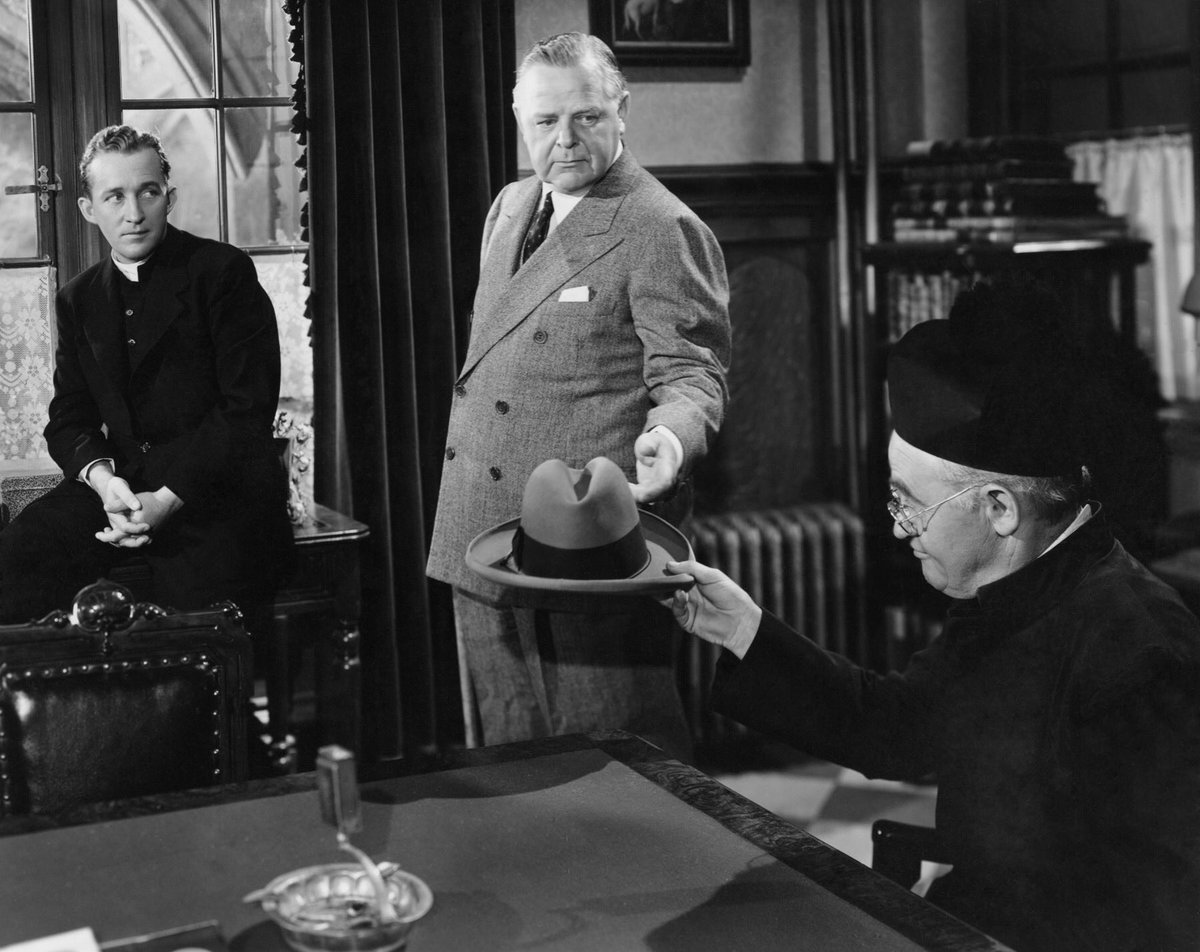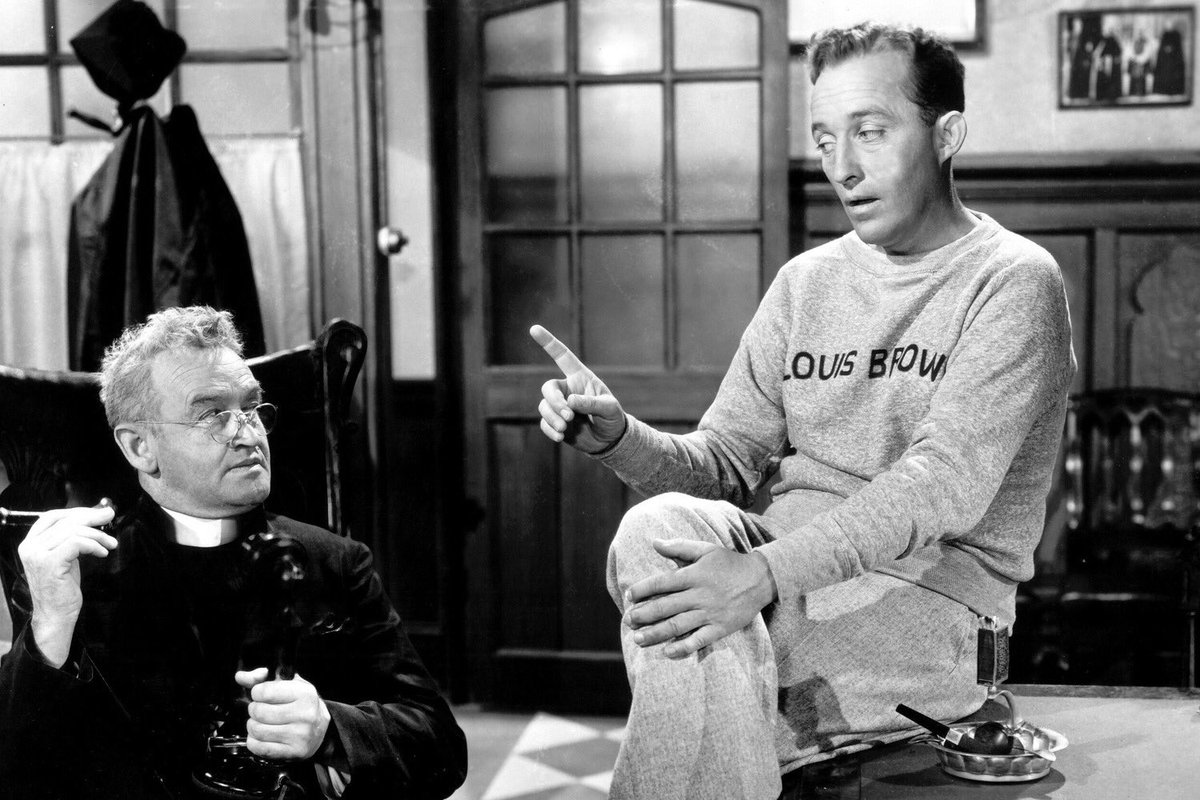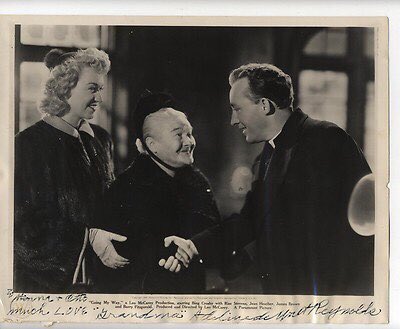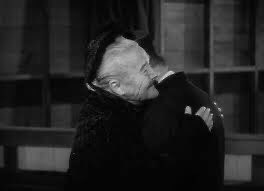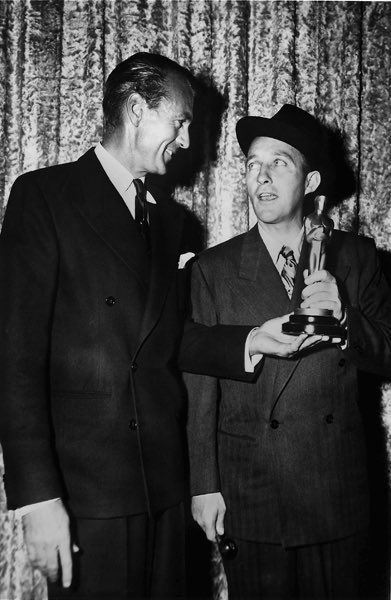In 1944, 2 of the most acclaimed and popular films of the year were made by Paramount. One starred the most popular entertainer of the 20th century, was directed by one of the most revered veterans in the business, and won 7 Academy Awards. The other was only the 3rd feature ...
... of its director, starred the highest paid woman in America, and won none of its 7 Oscar nominations. That film was Double Indemnity, today universally recognized as one of the greatest films ever made and the template for the pure noir genre. The other, if not forgotten ...
... has certainly fallen in critical estimation. Why has this happened? That film is Leo McCarey’s Going My Way, one of the most beautiful and heartfelt films ever made. Make no mistake it IS Leo McCarey’s film. In the studio era he was a true auteur and the film is almost ...
... entirel his. He wrote the story and while the screnplay credit went to Butler and Cavett he was re-writing scenes daily (he became the first director to win Oscars for writing and directing the same film). It was the top-grossing film of 1944 although during production...
... everyone was worried about what kind of reception the film would get. It has an outstanding cast headed by Bing Crosby and Barry Fitzgerald. Co-starring Frank McHugh, Rise Stevens, James Brown, and Gene Lockhart. 3 of the cast - lovely Jean Heather, Porter Hall, Fortunio ...
... Bonanova - were also in Double Indemnity. There are Oscar-winning songs by Van Heusen and Burke. But what the film has most is charm, true sentiment, and heart. All wrapped up in what - at the time - was a somewhat progressive view of religion. I often feel that people ...
... confuse true genuine sentiment with sappy sentimentalism. This film, under the sure hand of McCarey, never veers into the latter. This isn’t the overly sentimental Irishness of Ford’s The Quiet Man. Not by a long shot. Its moments of sentiment are just that: moments ...
... think of the scene with Brown and Heather when Lockhart discovers what his son is up to. It’s not wrung dry. We discover, it happens, and with a word or 2 the scene is over. The point is made (the ultimate example comes later). So why is the film not better remembered? ...
... it’s complicated I think. It starts with a certain critical resentment that Going My Way beat out Double Indemnity for Best Picture. It’s a silly way to approach critical thinking about a film but I’ve been hearing that for 40 years. Both were valid choices but maybe ...
... Going My Way was a better choice for 1945. 2nd, we seem very wary of anything sweet and kind these days. We want hard-edged, edgy, cynical. It’s part of why Wilder is still acclaimed today while Leo McCarey is forgotten. And that’s 3rd. This is one auteur who has ...
... been forgotten. He only made 24 feature films, the vast majority before Going My Way. In his last 25 years he made only 6 films, retiring in 1962, dying in 1969 before the nostalgia craze fully took hold during the 1970s. There were no festivals or life achievement awards ..
... for him as he was gone. There’s much more to say about the performances and the film but I’m suddenly tired. It’ll keep until morning.
... as I was saying. Bing Crosby’s performance is deceptively simple but highly effective. It forever fixed him in the public’s mind as Chuck O’Malley the amiable priest. The role - and how he played it - was an extension of his public persona but it is acting. It is not ...
... him. Crosby’s performance is filled with wonderful little touches and his interactions with the troubled boys are lovely. In particular, his early scene with Jean Heather in which he teaches her how to sing a song is what made him so believed by audiences for 50 years ...
... he helps, he never quite judges, he’s your friend. He perfected this in a career the likes of which we will never see again. I knew Rise Stevens very well for 40 years and attended the public memorial service for Bing put on by St Patrick’s Cathedral in October of 1977 ...
... with her. Then Bishop Theodore McCarrick delivered the homily and these words have stuck with me “the bell’s of St Mary’s ring out, but let us sing no dirges, for Father O’Malley has gone home to God.” Rise had very fond memories of making the film. One of the best stories .
... involved the Carmen sequence. McCarey wanted her to do something else but she insisted on Carmen. She had been trying to convince Edward Johnson at the MET to let her sing Carmen but he didn’t think her “right for the role.” She set out to prove him wrong. She then became ..
... the most celebrated Carmen on earth for the next 15 years. Amazing. One of the things the film does so well is balancing the music with the humour and the sentiment by weaving different stories involving multiple characters throughout the movie. I’m thinking of that ...
... touching scene when Jenny finds out that Chuck is now a priest. It’s so beautifully done filled with both sweetness but a with tinge of regret. McCarey wanted the audience to wonder if they’d been intimate but it’s very subtle and easily missed. Then there’s the golf ...
... scene with those 2 Irish scene stealers Barry Fitzgerald and Frankie McHugh. Hilarious. Fitzgerald is the other anchor of the film. He’d been doing - and overdoing - his crotchety Irish Catholic thing for years (all the more remarkable since he was a Protestant!) but Leo ..
... really got him to tamp it down and he gives the performance of a lifetime. He’s the stubborn old man and the naughty little boy all at the same time. It’s a truly delightful performance. It also - like Mutiny on the Bounty and Walter Brennan before it - led to changes ...
... in Oscar rules. Fitzgerald was nominated for both Best Actor and Supporting (which he won) and this will now never happen again. There is so much more one could talk about from the Mitchell Choir and on. But let me leave you with one more “moment” that demonstrates ...
... McCarey’s mastery of sentiment. It is, of course, the end of the film. The church has burned, hope seems lost, O’Malley is moving on. In the rickety homemade chapel it’s Christmas Eve. O’Malley says farewell and then Fr Fitzgibbon’s aged mother - who he hasn’t seen in ...
... decades - toddles in from the old country (to an Irish lullaby) to embrace her old son. It simply tears your heart out but ... only for a moment. McCarey doesn’t linger. It’s over in a flash and we’re outside with O’Malley walking away, a somewhat wistful ending ...
... I see O’Malley as a rather Moses-like character. He has led them all here but he is outside the celebration, moving on. It’s a perfect demonstration of McCarey’s genius and the everlasting beauty of this great masterpiece ...
... I hope I’ve made you want to see it if you haven’t. It is one of my favorite films and a classic of American cinema. It should be restored to the Pantheon. It richly deserves to be there. “Father Chuck, huh? Father Chuck?” Indeed.  https://abs.twimg.com/emoji/v2/... draggable="false" alt="⭐️" title="Medium star" aria-label="Emoji: Medium star">
https://abs.twimg.com/emoji/v2/... draggable="false" alt="⭐️" title="Medium star" aria-label="Emoji: Medium star"> https://abs.twimg.com/emoji/v2/... draggable="false" alt="⭐️" title="Medium star" aria-label="Emoji: Medium star">
https://abs.twimg.com/emoji/v2/... draggable="false" alt="⭐️" title="Medium star" aria-label="Emoji: Medium star"> https://abs.twimg.com/emoji/v2/... draggable="false" alt="⭐️" title="Medium star" aria-label="Emoji: Medium star">
https://abs.twimg.com/emoji/v2/... draggable="false" alt="⭐️" title="Medium star" aria-label="Emoji: Medium star"> https://abs.twimg.com/emoji/v2/... draggable="false" alt="⭐️" title="Medium star" aria-label="Emoji: Medium star">
https://abs.twimg.com/emoji/v2/... draggable="false" alt="⭐️" title="Medium star" aria-label="Emoji: Medium star">

 Read on Twitter
Read on Twitter